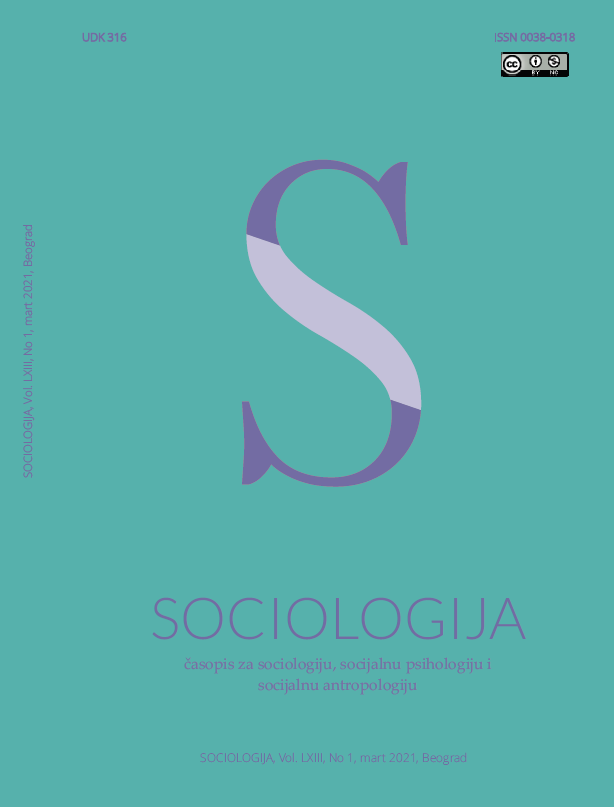Analiza višestrukih podudaranja kao oruđe u sociološkim istraživanjima
Multiple Correspondence Analysis as a Tool in Sociological Research
Author(s): Ivica MladenovićSubject(s): Sociology, Methodology and research technology
Published by: Sociološko naučno društvo Srbije
Keywords: MCA; methodological tool; structural representation; methodology; Pierre Bourdieu
Summary/Abstract: Multiple correspondence analysis is a form of a factorial multivariate data analysis which helps us summarize a large quantity of information with assistance of modern statistical programs. In this way, sociological correlations – which are then visually represented on a two-dimensional graph – are established between a certain number of active and supplementary variables, i.e. between the positions, dispositions and position-takings (French: prises de position) by the analyzed agents. It is a research tool initially introduced by a statistician Jean-Paul Benzécri in the humanities and social sciences in the 1960s. Since the early 1970s, thanks to Pierre Bourdieu, this methodological procedure has become an indispensable instrument in the empirical studies of sociologists who were familiar with structuralist approach in sociology. This paper consists of two main sections. The first one sets out the basic theoretical assumptions and methodological properties of multiple correspondence analysis. The aim of the second section is to give a brief recital of one particular research – i.e. its features and results – in order to get the interested sociological public aquaitned with it’s practicle potentials of this tool.
Journal: Sociologija
- Issue Year: 63/2021
- Issue No: 1
- Page Range: 26-49
- Page Count: 24
- Language: Serbian

